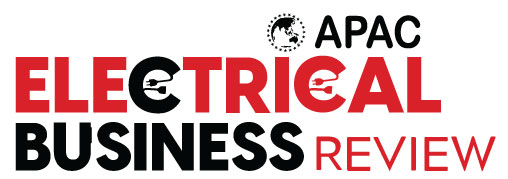Thank you for Subscribing to Electrical Business Review Weekly Brief
Exploring the Importance of Electrical Enclosures in Modern Applications
Electrical Business Review | Thursday, June 15, 2023
Electrical enclosures protect electrical equipment from environmental factors, ensure safety, enhance reliability, and comply with industry standards.
FREMONT, CA: Electrical enclosures are essential components in numerous industries, safeguarding electrical equipment from environmental hazards and ensuring the safety and reliability of electrical installations. These enclosures provide a secure and protected environment for electrical components, allowing them to operate optimally while minimizing the risk of damage and hazards. In this article, we delve into the significance of electrical enclosures in modern applications and highlight their key features and benefits.
Protection against Environmental Factors:
Stay ahead of the industry with exclusive feature stories on the top companies, expert insights and the latest news delivered straight to your inbox. Subscribe today.
One of the primary functions of electrical enclosures is to shield electrical equipment from various environmental factors. These enclosures are designed to withstand extreme temperatures, humidity, dust, dirt, water, and other potentially damaging elements. Whether installed indoors or outdoors, electrical enclosures provide the following:
• A barrier that safeguards sensitive components.
• Preventing malfunctions.
• Short circuits.
• Equipment failure caused by exposure to adverse conditions.
Enhanced Safety:
Safety is a paramount concern when it comes to electrical installations. Electrical enclosures play a vital role in ensuring the well-being of personnel and the general public. By enclosing electrical components within a secure enclosure, the risk of accidental contact with live wires or high-voltage equipment is significantly reduced. These enclosures are often designed with lockable doors and tamper-proof mechanisms, providing an extra layer of protection against unauthorized access.
Reliability and Longevity:
Electrical enclosures are engineered to enhance the reliability and longevity of electrical systems. By providing a controlled environment, they minimize the impact of external factors that can compromise the performance of electrical components. Enclosures equipped with features like ventilation systems and cooling mechanisms help dissipate heat generated by equipment, preventing overheating and extending the lifespan of sensitive electronics. Furthermore, enclosures with robust construction materials offer resistance against corrosion, impact, and vibration, ensuring the integrity of the enclosed equipment over an extended period.
Flexibility and Customization:
Electrical enclosures come in various sizes, shapes, and materials, providing flexibility for different applications. Manufacturers often offer customization options to meet specific requirements. Enclosures can be tailored to accommodate various types of electrical equipment, including control panels, switches, relays, transformers, and more. Whether it's for industrial, commercial, or residential use, electrical enclosures can be customized to fit the application's specific needs, ensuring optimal performance and seamless integration.
Compliance with Regulations and Standards:
Adherence to regulations and safety standards is of utmost importance in electrical installations. Electrical enclosures are designed and manufactured following industry standards, ensuring compliance with safety codes and regulations. These standards specify requirements for factors such as ingress protection (IP) ratings, temperature resistance, fire resistance, and grounding. By utilizing enclosures that comply with these standards, installers, and businesses can have confidence in the safety and reliability of their electrical systems.
Conclusion:
Electrical enclosures protect electrical equipment from environmental factors, ensure safety, enhance reliability, and comply with industry standards. These enclosures provide a secure and controlled environment, safeguarding sensitive electrical components and mitigating risks associated with electrical installations. As technology advances, the demand for reliable and versatile electrical enclosures will continue to grow, making them an indispensable part of modern applications across various industries.
More in News




